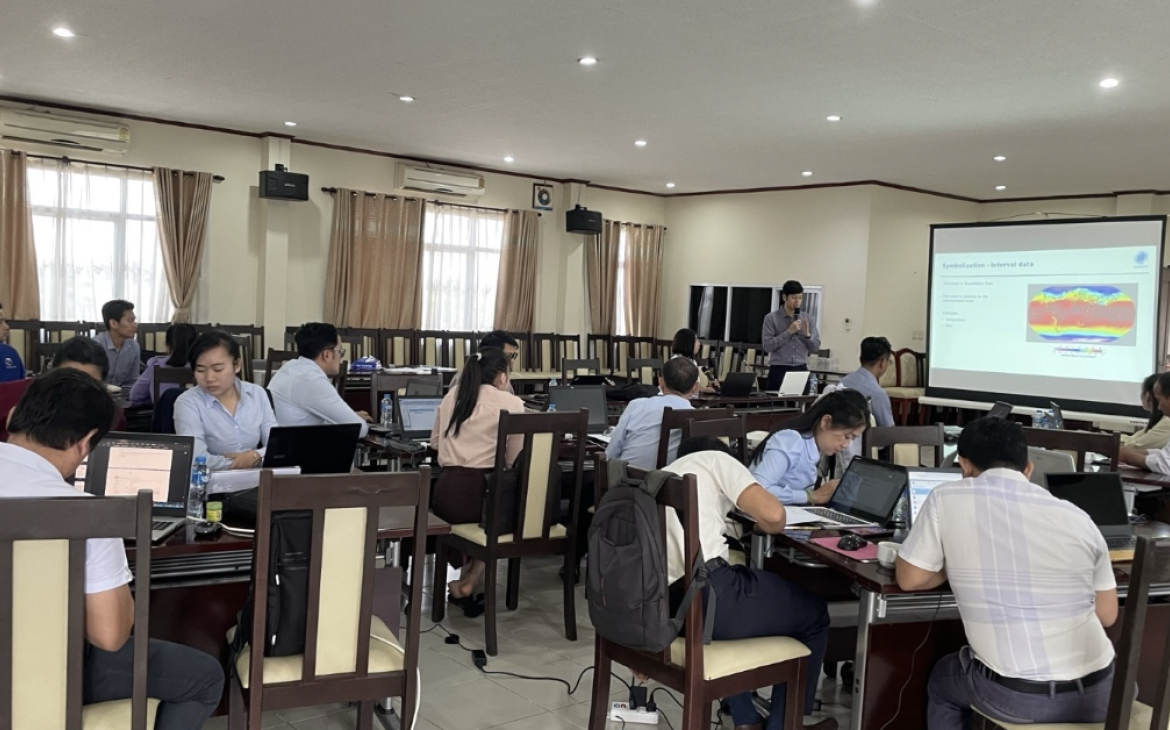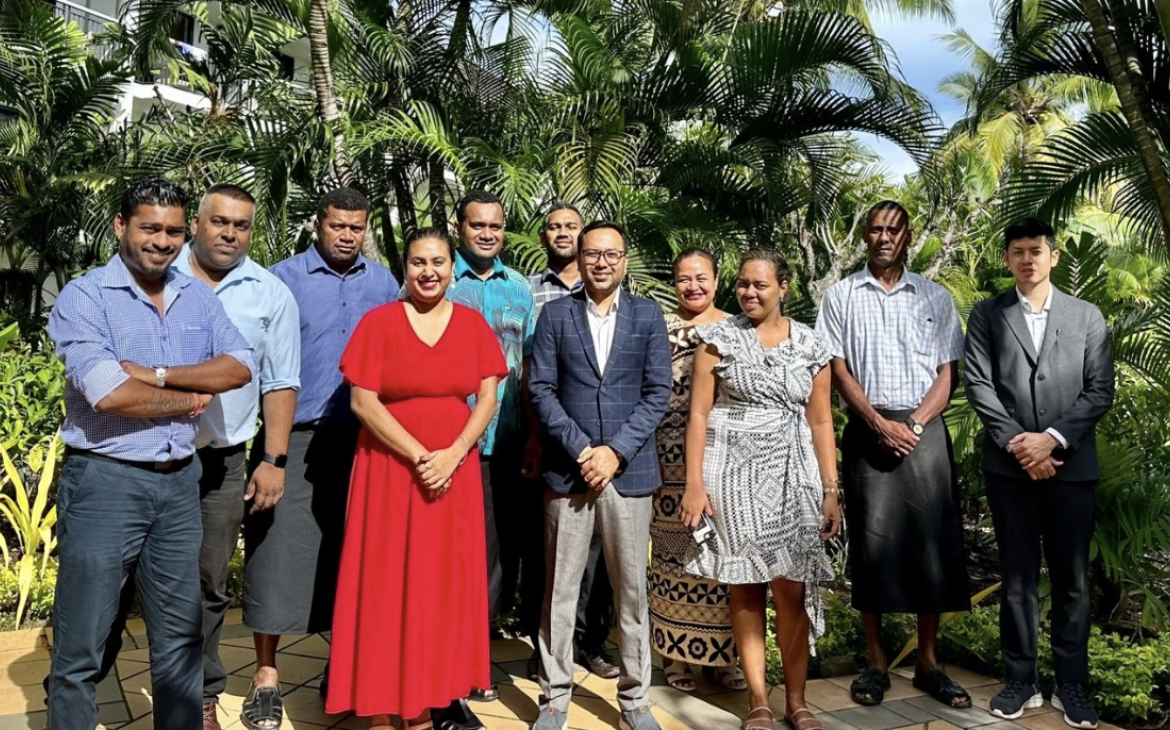Behavioural science plays a pivotal role in designing learning experiences that lead to meaningful and lasting changes. At UNOSAT, we harness these insights to tailor training programmes that not only transfer knowledge but also influence behaviours critical to disaster resilience. Through projects like Strengthening Capacities in the Use of Geospatial Information for Improved Resilience in Asia-Pacific and Africa, we focus on elements such as motivation, real-world application, and community engagement, ensuring that participants can internalize and apply their learning in their professional environments.
This three-year project, supported by the Norwegian Agency for Development Cooperation (NORAD), aims to enhance capacities in using geospatial information technologies for improved resilience across various sectors. Programme activities include national technical training, regional awareness-raising events, and integrated solutions for disaster risk reduction, ensuring that participants are equipped to make informed decisions that positively impact their communities.
A notable example of this impact is Micky Welin from Vanuatu’s National Disaster Management Office (NDMO). After attending UNOSAT training on Geospatial Information Technology (GIT) as part of the programme, Micky’s newfound skills revolutionized NDMO’s approach to disaster management. He applied GIS techniques learned during the training to improve risk mapping, significantly enhancing disaster preparedness and showcasing the real-world applications of the knowledge acquired through the project.
8,000 kilometres away in Laos, Mrs. Khaemeuy Chao, a technical staff member at the Weather Forecasting and Warning Division of Laos' Department of Meteorology and Hydrology, also participated in a similar UNOSAT training. Mrs. Chao enhanced her skills in utilizing satellite imagery and remote sensing methodologies. Her proactive strategies in identifying high-risk areas and improving weather forecasts have significantly boosted disaster preparedness in her home country.
These stories highlight how understanding behaviour—such as the need for ownership, peer validation, and practical applications—ensures that training doesn’t stop at knowledge transfer but becomes the foundation for behaviour change. By continuously refining our learning events based on behavioural science insights, we empower individuals and organizations to make more informed, resilient decisions in disaster management.



